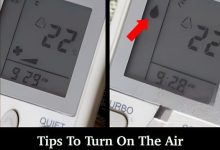brightside.me
Americans spend around $2,000 on energy bills per household on a yearly basis. This huge amount of money can easily decrease by making small changes. For example, by investing in a “smart” thermostat, you can save up to $100. Something even simpler, like replacing all light bulbs with LED bulbs, can cut $50 from your electricity bill.
Use dryer balls when putting your clothes in the dryer
Compared to other home appliances, a dryer spends the biggest amount of energy. That’s why some people tend to air dry their clothes. However, if that’s not possible with you, you can simply add a wool or rubber dryer ball with your clothes. These simple things have the ability to separate your clothes and give them some air to dry faster.
The wool balls especially can absorb some moisture which helps the whole drying process finish faster. Another pro is that dryer balls reduce static, which means that you won’t need to change your dryer sheets as often.

Cook with the lid on
A nice habit that you can pick up while cooking is to simply put lids on your pots and pans. This way, you can set a lower temperature and decrease cooking time. This happens because you don’t allow the steam and heat to leave the pan and therefore your food is ready in less time.
What you will also decrease by following this habit is the energy you consume by up to 66%. Another helpful tip is to match the burner with the pot size so that no heat is escaping from the sides. Using unmatched burners and pots will result in up to 40% energy loss.

Increase the temperature in both your fridge and freezer
Many people believe that the lowest the temperature, the best it is for preserving your food. However, your fridge doesn’t have to be set lower than 38°F (3°C) and your freezer will operate just fine at 5°F (-15°C). It has been suggested that if you set them at least 10 degrees lower than that, you will spend up to 25% more energy.
If your frozen goods look like they are melting after you’ve increased the temperature, you might need to call for a professional. Another helpful tip to help your devices operate at their maximum efficiency is to keep them at least 3 inches from the wall. This way the air will have enough space to circulate.

Use an electric kettle to boil water instead of the microwave
It’s early in the morning and you only need a cup of tea and you have both the microwave and the kettle near you. According to a researcher, you should go for the electric kettle since it will do the job much faster and using less energy. As he found, a microwave loses 50% of its energy while converting electricity into microwaves. On the other hand, a kettle is very well insulated and loses only 20% of the total energy it uses.

Turn your blinds off to save up on air conditioning costs
Around 30% of a house’s heat is escaping through the windows during wintertime. And almost 76% of the sunlight that hits our windows enters our homes and turns into unbearable heat. Now, blinds might not be able to control the loss of heat in the winter, but they are very capable of keeping our interiors protected from the sun’s powerful rays.
More specifically, highly reflective blinds can shield the interiors from extreme heat. Especially the horizontal ones can reflect the heat on a light-colored ceiling, which will then diffuse the warmth.

Clean your dryer’s lint trap
Letting your dryer operate with its lint trap full of dirt, will only result in it being less efficient at its job. The dirt forces the device to work harder, taking up more energy and time to dry clothes. Depending on how dirty the lint trap is, the dryer could be spending up to 75% more energy than it normally would. That’s because the dirt doesn’t allow the air to circulate properly, forcing it to work extra hard.
The first thing you need to do often removes the lint trap and clean it. If you are still noticing issues with your dryer’s performance, you might need to check the exterior vent. If no steam is coming out while the dryer is working, then you probably need to do some cleaning there too.

Plug all your electronics in power strips
Not everyone realizes that our electronic devices still consume energy even when we have turned them off or put them to sleep mode. That’s why plugging everything in a power strip will give you the ability to completely disable them when you are not using them. Remember that you have to push the on/off button when you want to disable them. If you don’t, then your devices will keep on consuming energy.

Keep the oven door closed when broiling
Back in the day, ovens didn’t have any air circulation system and that’s why cooks used to leave it open a tiny bit to prevent a fire breaking out. However, modern ovens have great air circulation and systems that can prevent overheating. Also, most ovens don’t allow you to keep the door open unless you are holding it. This means that they are telling you in their own way that you need to keep the door shut.
The biggest drawback of keeping the oven door open is that you lose about 50% of the heat. This means that you will need to cook your food for double the time and therefore spend double the energy.

Switch to a low-flow shower head
The average showerhead uses around 2.5 gallons (9.5 liters) of water per minute. However, you can easily switch to a 1.7 gallon per minute (6.6 liters) showerhead. This change will save more than 11,000 gallons (42,000 liters) of water and 1.180 kWh of energy per year. You will also notice a huge difference in your water bill, which can vary based on where you live.








